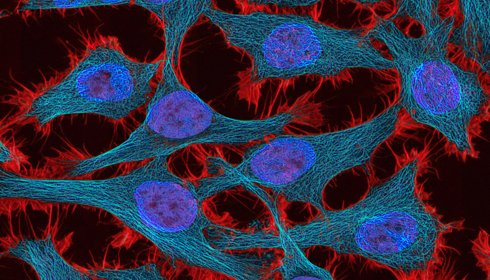
Nigeria launches landmark HPV vaccination drive to shield 7.7 million girls from cervical cancer
Nigeria has introduced the human papillomavirus (HPV) vaccine into its routine immunisation system to reach 7.7 million girls in a single round of vaccination, making it the largest number in the African region, with an initiative aiming to combat the virus responsible for nearly all cases of cervical cancer.
According to the country’s health officials, under the programme, all girls aged 9–14 years will receive a single dose of vaccine, which can prevent infection with HPV types 16 and 18, known to cause at least 70% of cervical cancers.
It may be recalled that in 2020, Nigeria reported 12,000 new cases and 8,000 deaths from cervical cancer, making cervical cancer, the third most common cancer and the second leading cause of cancer-related deaths among women aged 15 to 44.
Muhammad Ali Pate, the Coordinating Minister of Health and Social Welfare, stated, "The loss of about 8,000 Nigerian women a year from a preventable disease is completely unacceptable. Cervical cancer, caused by HPV, and parents can prevent physical and financial pain by protecting their children with a single dose of the vaccine."
Also Read:
| -One Indian woman loses her battle with cervical cancer every 9 minutes |
Stressing that saving lives, producing quality health outcomes, and protecting the well-being of Nigerians are central to the renewed health agenda of the Nigerian President, he added, “The onset of the vaccination campaign is an opportunity to safeguard our girls from the scourge of cervical cancers many years into the future."
According to health officials, the five-day initial rollout of the vaccination campaign targets schools and communities in 16 states and the Federal Capital Territory. Thereafter, it will become part of routine immunisation schedules in healthcare facilities. The second phase of vaccination is scheduled to begin in May 2024 in 21 states.
In preparation for the massive immunisation campaign for which vaccines are provided free of charge by the Federal Ministry of Health, with support from Gavi, the Vaccine Alliance, the United Nations Children’s Fund (UNICEF), the World Health Organisation (WHO), and other partners, over 35,000 health workers have received training and will be manning 4,163 wards across the 16 states.
The sources from the health ministry further said that mobile vaccination units have been set up to ensure girls in remote communities can access the vaccine.
Pointing out that the HOV vaccination marks the pivotal moment in Nigeria’s efforts to lower the burden of cervical cancer, one of the few cancers that can potentially be eliminated through vaccination," WHO Representative in Nigeria, Dr. Walter Kazadi Mulombo, said, "We are committed to supporting the government to increase access to the HPV vaccine to protect the health and well-being of the next generation of women."
The World Health Organisation recommends HPV vaccination in national immunisation programmes for countries with high cervical cancer rates. Nigeria has added the vaccine to its routine schedule. Gavi and its partners are investing over $600 million by 2025 to revitalise their HPV vaccine programme, aiming to reach 86 million girls and prevent 1.4 million cervical cancer deaths.
"Every day, cervical cancer inflicts profound loss and devastation on families across Nigeria. It also disproportionately impacts the lives of women. And yet, it is a disease that can be prevented. With the HPV vaccine now available in Nigeria for eligible adolescent girls at no cost, communities now have the most effective tool to fight cervical cancer, and the nation has an opportunity, collectively, to save millions of lives," says Thabani Maphosa, Managing Director of Country Programmes Delivery at Gavi, who believes that over 16 million girls could be protected by 2025.
UNICEF has procured nearly 15 million HPV vaccines and created informational materials, including radio and TV jingles in multiple local languages, to combat misinformation and rumours in Nigeria. The UN Agency has also facilitated readiness assessments to understand the population's sentiments regarding HPV and the vaccine.
According to Cristian Munduate, UNICEF Representative in Nigeria, the introduction of the HPV vaccine in Nigeria represents a monumental stride towards safeguarding girls from the grips of cervical cancer.
"UNICEF is ensuring that every eligible girl, irrespective of her location or circumstances, has access to this life-saving intervention. Together, we are scripting a narrative of hope, resilience, and a healthier Nigeria," she added.